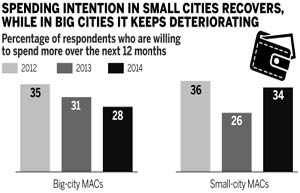This environmental approach is in stark contrast to the modus operandi of many government offices (and hence outside observers), in which the government habitually comes up with this or that policy to promote or protect designated industries or businesses.
A common mistake is that this sort of target-specific political favoritism is often lumped together with the policies designed to provide largely indirect impetus to a broader range of activities, such as modernizing public infrastructure.
These two kinds of policies are both called industrial policies. Liberal economists tend to dismiss them wholesale as the evil of government interference, and Chinese officials tend to use them interchangeably as equally necessary for generating development.
But obviously, for entrepreneurs, there are good industrial policies and bad ones.
Good industrial policies are those that clear away obstacles to fair competition and help promote, usually indirectly, broader business activities.
Policies made under the target-specific approach are often bad ones, even though they can temporarily boost sales, because they end up distorting competition and stifling entrepreneurship.
Policies tailored to hold up specific industries or, even worse, specific types of businesses, used to be rampant in China whenever business slid into a down cycle. By then, the strongest industrial lobbying came from the largest state-owned corporations that claimed strategic importance.
As favorable policies were dished out to the so-called strategic industries and corporations, sometimes wastefully and recklessly, other industries and companies could find themselves worse off, having even more limited access to the resources needed for their survival.
In fact, much of China's problem of industrial overcapacity was a creation of the massive financial bailout that the government introduced after 2008. Now the government has to spend another huge dollop of public funds to dismantle the overcapacity it built up just a few years ago.
The author is editor-at-large of China Daily.
 |
 |
|
|
